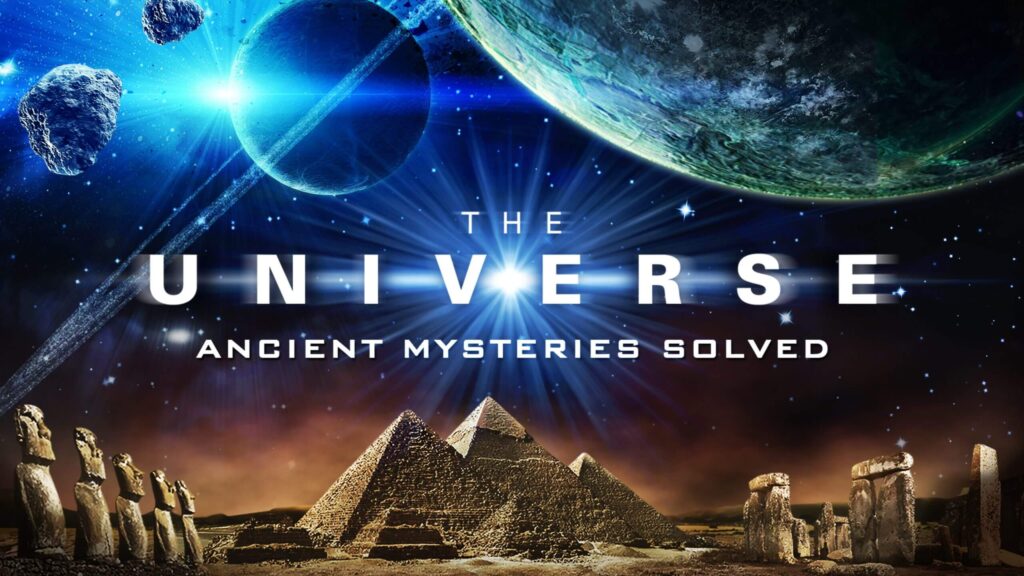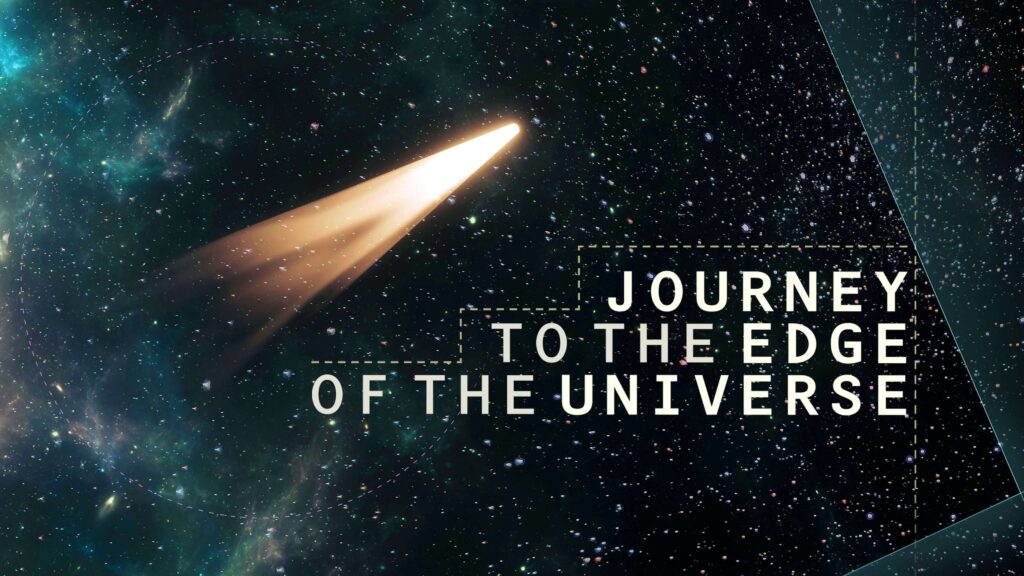
The night sky has always inspired wonder amongst human beings. Stars, planets, comets, and other cosmic objects once seemed to convey divine messages. Ancient civilizations based some of their more irrational, nonsensical beliefs on those same cosmic phenomena. Ultimately, documentaries provide us a way to reckon with the influence of our cosmic wonders through time.
1. The Universe: Ancient Mysteries Revealed
This documentary examines how ancient peoples associated stars with gods. The graphically detailed documentaries also focus on Egyptian pyramids aligned with Orion. There is even a surprise that modern study of the ancient pyramids aligns with how accurately the Egyptians were aligning their Stargates through the pyramids (described as newly developed modern technologies).
The films note how the Babylonians could also predict eclipses. The Egyptians would record the lunar cycle and use that information concerning political events in the country. The depth of information they discover and incorporate into their assessments of human interaction is another example of how deeply the cosmos affects human psychology.
Did you know that they even made star maps to record night sky events without telescopes back in the day? Those star maps were taken seriously and guided farmhands, merchants, and even generals in their engagements and decisions. To the point where modern science claims many of those natural synopses on human interaction were accurate.
From an Islamic perspective, reflections of the night sky are prevalent with the introduction of looking at Time. The Qur’an encourages believers to think about the night sky through two-dimensional time dimensions, as in “the time “, and it is He Who created the night and the day, the sun and the moon”(Surah Al-Anbiya: 33), and as in “the sign” as in “the moon”. Higher states of awareness will realize and accept that the cosmos is assigning us signs.

Read more: 6 Beliefs from the Stars That Still Resonate
2. Ancient Skies: Gods and Monsters
One remarkable documentary is Ancient Skies. The film talks about how myths came from star patterns. For instance, the Greeks tied hero stories and monsters to star constellations. These stories at that time provided meaning to the participants’ lives and even beyond death. The film elaborates on cultural cosmologies and people sharing myths that spanned continents. Interestingly, psychology explains that human beings who share myths can lessen fear and build trust within a community. The stars, understood as myths, thus offered both guidance and security and made mistakes along the way.
Did you know that almost every ancient culture agreed on a record of the Pleiades cluster? From Native Americans to the Arabs, this star cluster shaped cultural practices and memorials throughout societies.
Religious beliefs related to the cosmos carry similar weight. A more recent religion, Islam, relates to washing hands, feet, etc., which connects back to the cosmos. Prophet Muhammad (ﷺ) stated, “My nation will never perish as long as they follow the stars” (Musnad Ahmad). Many scholars attribute the meanings as guidance to celestial knowledge as well as Qur’an knowledge.
3. The Wonders of the Ancient Astronomers
The follow-up documentary continues to follow the Mayans and Chinese observers of the sky. The Mayans built temples with a line to the equinoxes, and they invented a calendar that was so impressive that they predicted solar events for centuries into the future.
Chinese astronomers described supernovae, which caused modern scientists to think of the end of stars. For instance, NASA refers to various ancient Chinese charts of the stars to this day.
Psychologists now discuss the value of order in our universe and how this order gives us hope. It also ordered our minds and caused us to act rationally during uncertain times. Predictability relieved anxiety. Knowing when the sun would rise offered a sense of order and gave us inner peace.
Do you know that Mayan astronomers tracked Venus for more than 500 years? How is that for accuracy on the part of all astronomers? Modern researchers are similarly joyful.
In Islam, Allah wants us to reflect on His order in the celestial glory. In Surah Yunus: 5, Allah says, “It is He who made the sun a shining light and the moon a derived light and determined phases for it.” So, in this verse, Allah highlights His order in the cosmic cycles around which we plan our days, weeks, months, years, and entire lives.
4. Journey to the Edge of the Universe
This journey into the realm of the cosmos brings together ancient speculation and the modern scientific method. It highlights humanity’s wonder at the cosmos, tracing the awe of potential beginnings from the ancients into astrophysics today.
The film covers the idea of cosmic distances (which is critical!), and relates how ancient myths were thought of as early attempts to explain infinity, and considers the psychology behind how thinking about things so vast as the cosmos creates a sense of expansion within humans, enhances creativity, and spiritual depth.
Did you know that studies indicate greater life satisfaction for people who stargaze? The rush of awe has the effect of “taking your mind off you” and enlarging your awareness of connectedness to something greater.
Also, Islam describes this beautifully. Allah says, “Indeed, in the creation of the heavens and the earth… are signs for people of understanding” (Surah Aal-e-Imran: 190). Hence, deep thinking about the universe is spiritually nourishing and nurtures both belief and wisdom.

Real-Life Case Study: Karachi’s Astronomy Club
In Pakistan, the Karachi Astronomy Club promotes astronomical awareness among the youth and helps them escape the night sky’s joys. The members meet under dark skies and observe planets. Many students report that their stargazing experiences have reduced their anxiety and increased their focus.
One student participant shared that after losing a parent, he searched for comfort through observing the night sky. The vastness of the sky helped him understand Allah’s power. He explained that observing the night sky healed his mourning and gave him a new perspective.
Current psychology supports stargazing’s healing aspect. Mental health professionals refer to stargazing as providing “awe therapy” because the experience helps individuals manage trauma by shifting their attention from pain to joy. So, the link between healing and the universe is preserved in the guiding principles of our ancestors.
To conclude
Evidently, documentaries on ancient minds and the universe unlock a wealth of profound understandings of human thoughts. The documentaries present how stories about stars have influenced mythology, calendars, and psychology. Additionally, contemporary scientific work verifies that many of the ancient observations were accurate.
Islamic thought reflects this type of cosmic reflection beautifully. The Qur’an provides a call for believers to reflect on creation. Current narratives provide us with clear demonstrations that the sky continues to influence the mind today.



Leave a Reply